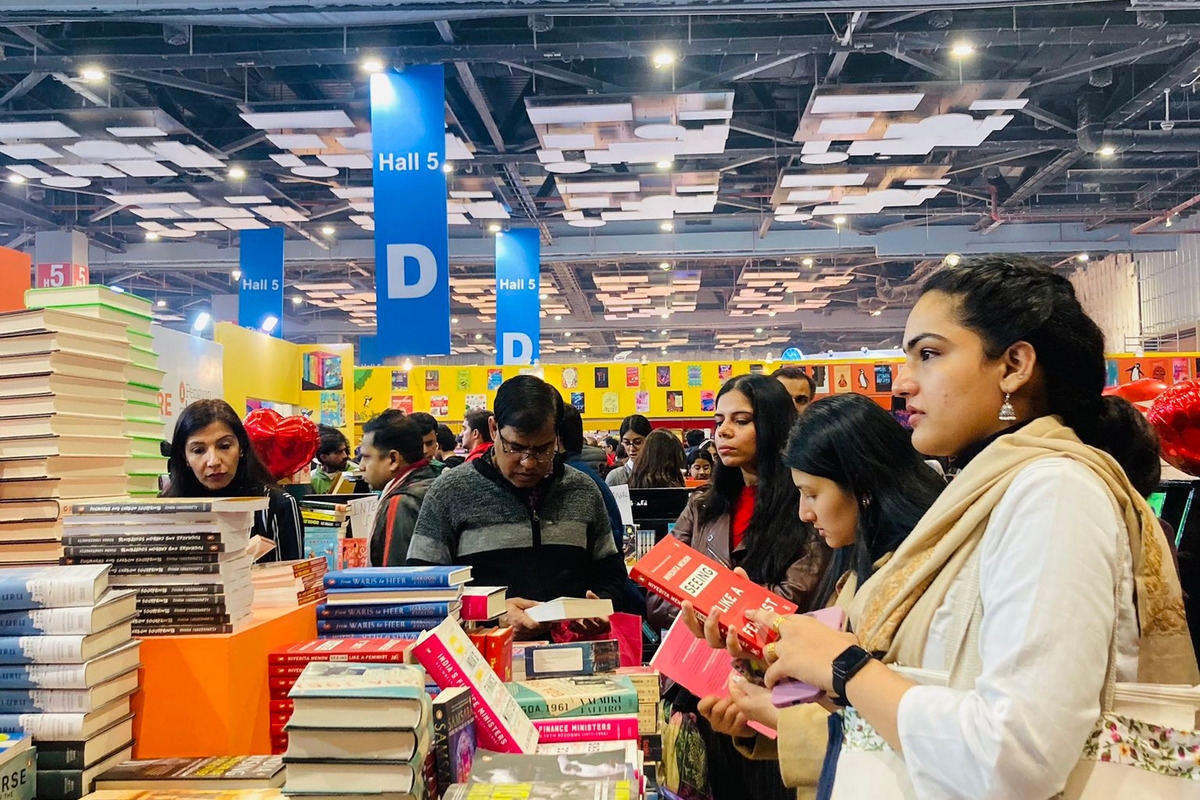PM Modi to inaugurate SOUL Leadership Conclave in Delhi today
Prime Minister Narendra Modi will inaugurate the first edition of the SOUL Leadership Conclave in Bharat Mandapam, New Delhi, on Friday.
Children’s Pavilion has emerged as a captivating haven for young readers with sessions on storytelling, illustrations, calligraphy, arts, drama and sessions on space exploration.

The New Delhi World Book Fair at Bharat Mandapam at Pragati Maidan in the city on Saturday witnessed heavy footfall.
The day witnessed jam-packed roads leading to Pragati Maidan with 1.5 lakh attendees and never-ending queues of excited families at the New Delhi World Book Fair.
Advertisement
In order to facilitate the crowd, the National Book Trust, India has organized additional shuttle services.
Advertisement
A grand congregation of literary luminaries, educators, and bibliophiles, celebrated their love for books and reading with something for every individual at the Fair extending from its diverse range of books, international publications, and vibrant cultural events.
The theme of Multilingual India echoed across the fairgrounds, against the backdrop of vibrant pavilions, thought-provoking discussions, illustrations, cultural shows and activities.
Children’s Pavilion has emerged as a captivating haven for young readers with sessions on storytelling, illustrations, calligraphy, arts, drama and sessions on space exploration.
Specialized events catering to children with special needs underscored the fair’s commitment to fostering inclusivity and accessibility in literature, aligning with the ‘Books-for-All’ campaign.
The Great Indian Book Tours hosted a session on ‘Poetry Through the Lens of India’ at the Festival of Festivals (FoF) platform. The panelists discussed various aspects of poetry, including social commentary, modern Indian poetry, and women-centric poetry.
Among others, at the International Events Corner, the King Abdulaziz Foundation organised sessions on ‘Arabic Heritage in India Program’ ‘Contributions of Indian Scholars to the Arabic Heritage’ and ‘Contributions of Indian Foundations in Arabic Heritage’ were outlined.
The sessions highlighted the far-reaching impact of India’s knowledge systems and institutions within the larger global context.
Advertisement